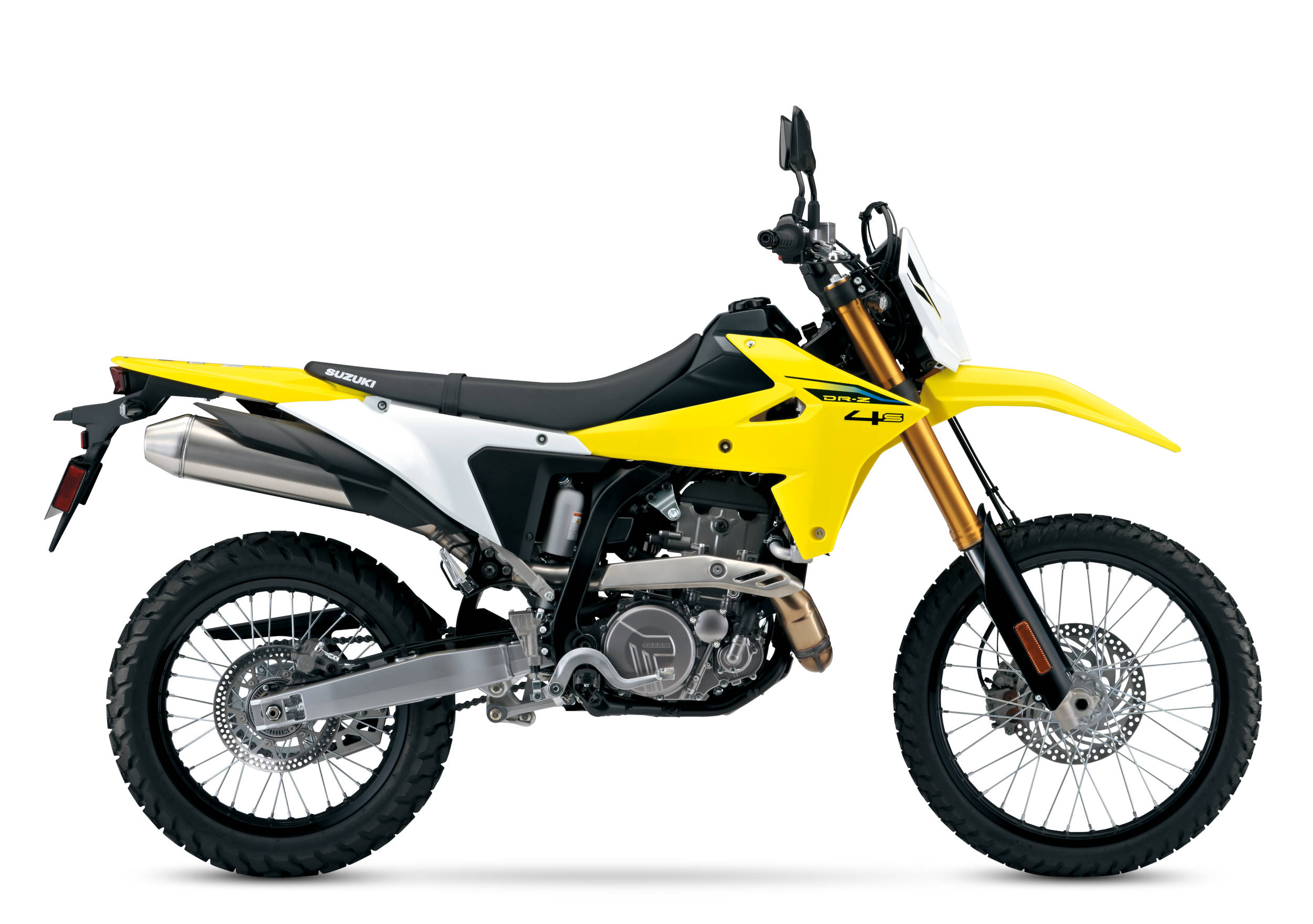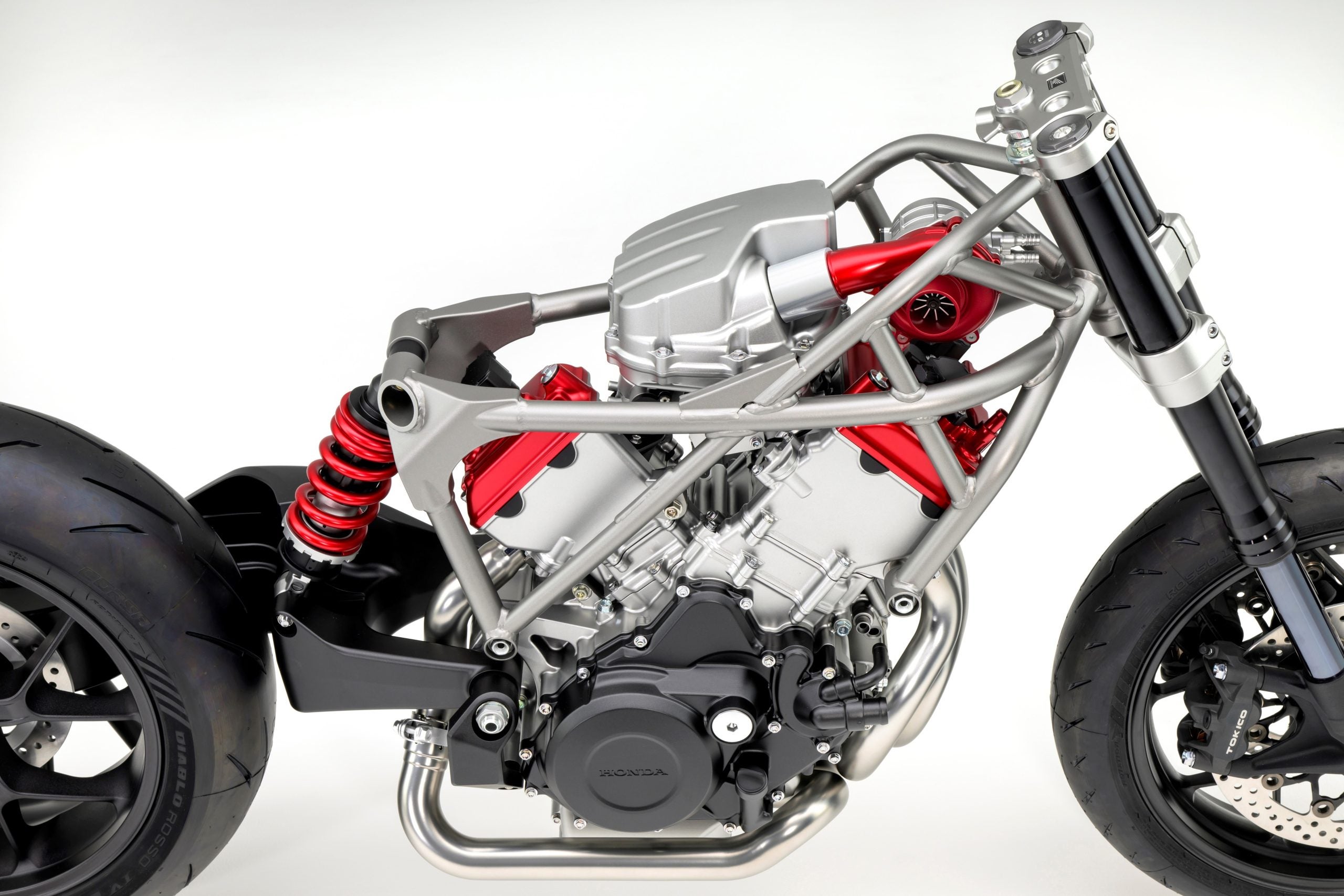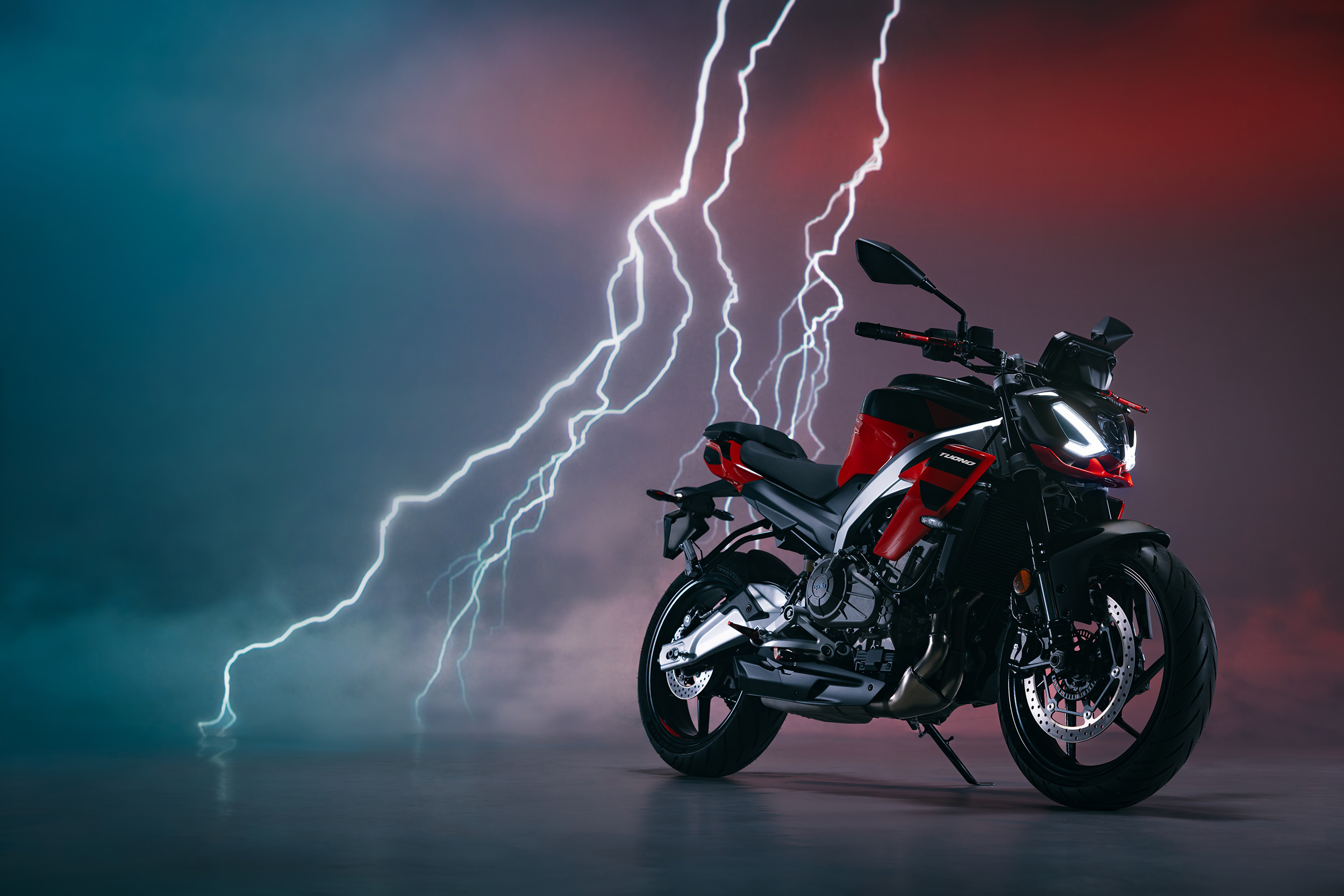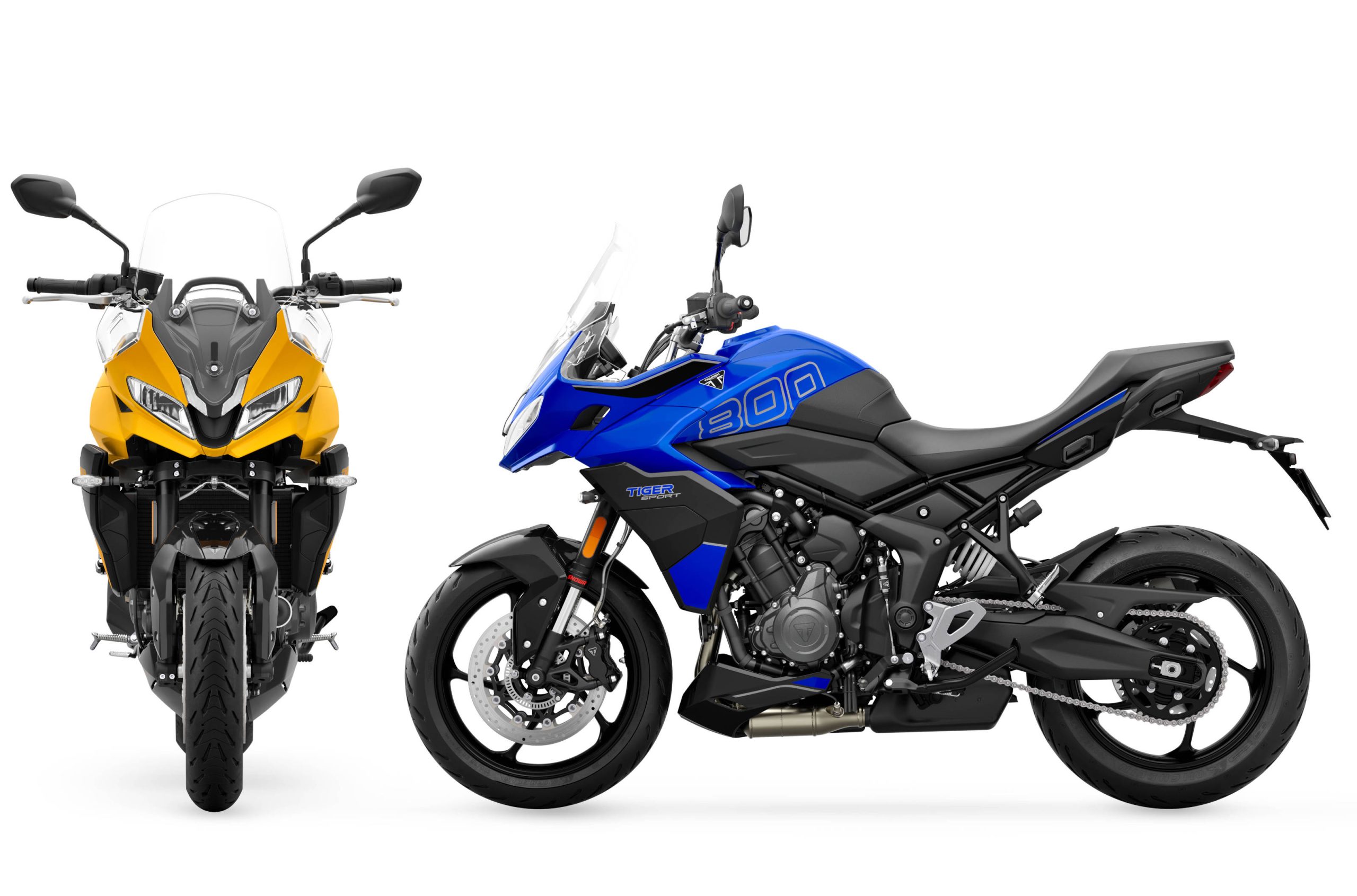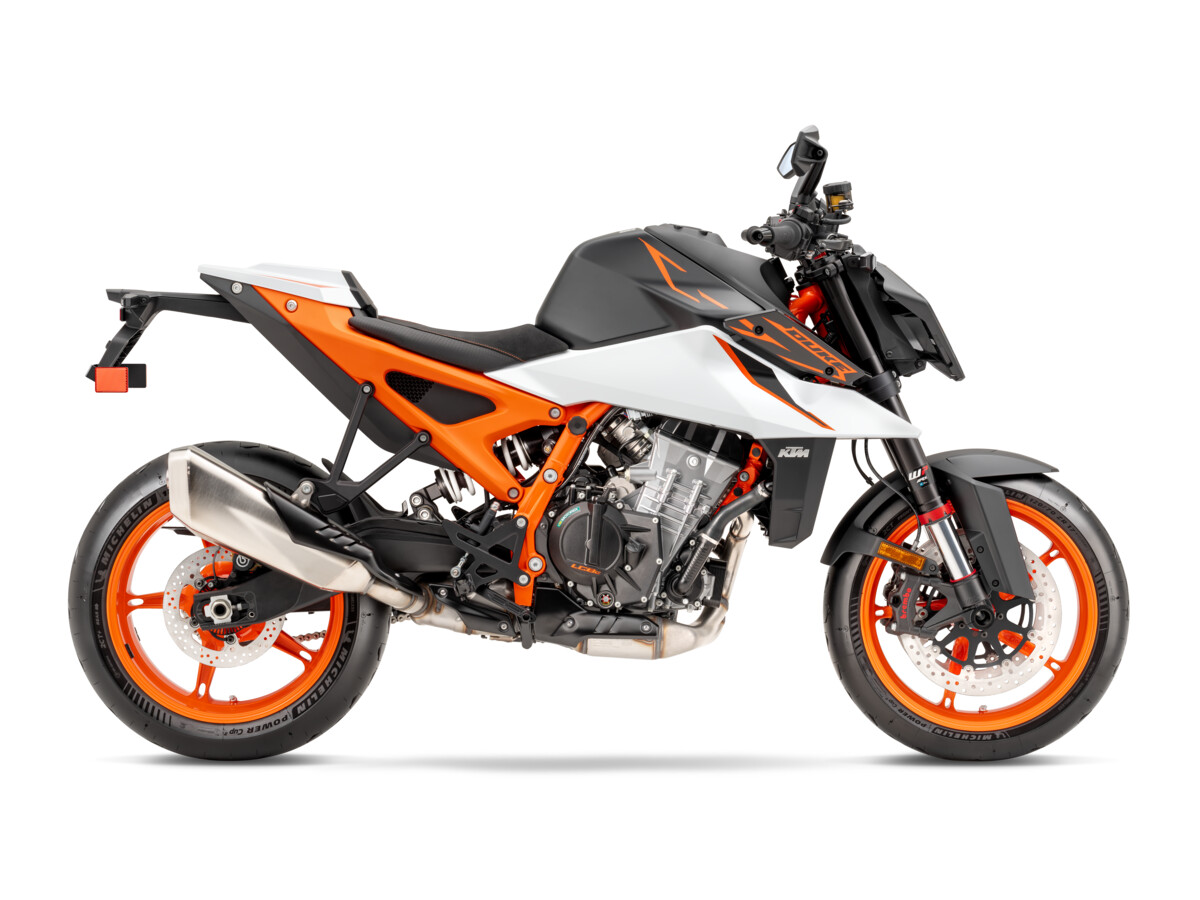In our article last week Police Motorcyclists – A Different Breed, we asked for responses from any police motorcyclists who read Motorcycle Daily. Here are a few of the e-mails we received:
- Hello,
I am responding to your article regarding Police Motor riders. Thank you for having such a high level of respect for us. My name is Don and am a Motor Officer for the Ca. Hwy. Patrol. I have been a CHP Officer for 13 years, a Motor Officer for 12 years and a former motorcycle instructor at the CHP academy (1999-2002). I now work in the Sacramento area on patrol.
I basically live and breath motorcycles. I am considered a true ‘junkie’ for two wheels.I have been riding since age 13 (I am 40 now) and have ridden/raced just about everything. I was a Honda mechanic right out of high school for 9 years before entering the CHP. I started road racing at age 18, turning pro 2 years later, riding select AMA Superbike events. I quit road racing several years later and rode motocross/off-road, quite seriuosly for the last 12 years.
Itching for something new and some renewed competition, I tried Supermoto in late ’03 and quickly became rather successful. I rode all the AMA National Supermoto races for the CHM Exhaust/Honda Pro Oils team last year, but had some nagging injuries and some bad luck. I’m looking forward to ’05 and starting fresh!
As far as my 8 hr day job, I guess I just can’t seem to get enough. “A bad day on a motor is better than a good day in a car” is my motto. I’ve ridden in excess of 350K accident-free miles on a departmental motor (knock on wood) and no end in sight. I will ride all day at work and not hesitate to ride/race all weekend. I guess it’s the next best thing to being a paid factory racer!
I still thrive on the adrenaline at work with high speed chases, catching high speed drivers, etc.
Well, thank you for listening and for your support of what we do,
Sincerely,
Don - Hey Alex,
I just wanted to send a note “Thanking You” for the kind words. As you may guess I am a Motor Officer in Texas and it is very rare that we hear anyone say anything positive about us. If people actually got to know us they would find out we’re just like anyone else and probably end up liking us. Just for example, I just got back home from Washington DC where myself and 3400 other out-of-town/state officers were selected to be sworn in as US Deputy Marshals to provide security for the Inauguration. While there, I met another Officer from my area that thought all the Motor Officers in our city were meanor rude. After hanging out with him for a day his mind was totally changed and ended up complimenting us. He just took the time to get to know me.
After serving 12yrs on patrol I applied and got accepted to our Motor Division. I thought I worked hard on patrol but it was like a country club compared to working on Motors. By the end of the day you are totally exhausted, mentally and physically.I have to be 100% focused 100% of the time. I have to pay attention to my driving so I don’t have an accident, other people’s driving so they don’t hit me, and for their violations. That is for 8 hours straight. The on the physical side we are either sweating profusely in the summer time to the point our uniforms are covered in salt stains which wears you out. Then in the winter time were freeze and have the chills for 8 hours in which your muscles are continuously tense and wears you out by the end of the day.
Lastly, I don’t give to many warnings.Thats not really my job. The way I give a driver a warning is hit my lights or siren to get their attention so they will correct their behavior. Violators will argue that they were in the intersection when the light went to red while I was sitting on the corner watching them run the lights 2-5 car lengths back. I wish people would understand that I ONLY write citations I am 100% confident in the violations. I WILL NOT risk my life cutting across a busy intersection just to stop a person who committed a violation that was too close to call.
If people could just see 1% of the fatality accidents I have worked they may appreciate what we do.
Thanks again for the kind words.
Ken
Master Officer
Motor Division
College Station, Texas Police Dept. - I’m a Virginia Beach Police Officer who spent two summer seasons working as a motorcycle unit at the oceanfront area of our city. I’ll probably go back to motorcycle patrol again this coming summer. Unlike the officers on my department who ride the Harley-Davidson motorcycles year round, I had the opportunity to return to regular patrol for half of the year. In addition to mountain bikes, mounted patrol, and walking beats, we use Honda Nighthawk 250’s as a faster way to respond to cases. It gets so crowded, especially during the weekends, that it’s nearly impossible for an officer to respond to calls in a reasonable amount of time in a patrol car. Basically, oceanfront motorcycle officers respond to all of the calls that a normal patrol officer would handle. We work ten hour shifts and spend a lot of time enforcing traffic violations when not responding to calls for service. Because we ride the small Honda Nighthawk 250’s, we don’t have hand free radios. So, in addition to trying to be safe while riding in extremely heavy traffic, we also look for traffic and criminal violations, try to respond to calls for service, and maintain communications via a radio that has to be operated by hand! It makes your typical motorcycle ride seem very simple!
- I am an officer and a passionate motorcyclist. You described some of the issues well, as in being alert for other violations while riding, but I believe many non-officer riders can also be aware of traffic violations while riding.
Where I would like to draw the attention is the tactics an officer must be aware of while riding a bike, in the open(no cage) and wearing the uniform. In the squad cars, there is all types of equipment and protection. When making the traffic stop, there is a V8 motor in front of you to take that bullet if you encounter such a character. Riding a motorcycle, defense tactics become MUCH more complex.
As for riding skills, one could argue that a motorcop would have better riding skills since they are on the saddle for 8-10 hrs a day. But, as with enduranc racing, not only the body becomes tired, but so does the mind. When the mind becomes tired, THAT is when people(cops and otherwise) get the brain fade. When brain fade sets in, hopefully one recognizes that, “Hey, I’d better take a break.” I realize in racing that may not be an option unless the other riders are suited up. As a traveler or a motorcop, it’s time to stop, drink some water and eat a snack.
The plus side….the smiles on most kids faces when they see you. It truly is fun to see, and it’s one of few visible positives that can be seen from day to day. - I patrol the streets of Washington, DC on a 250cc Honda Rebel. Until very recently, I rode everyday; rain, cold and heat. Ice was the only limiting factor.
Let me tell you, it is not easy to ride the bike, listen to the radio, watch for bad guys and not get run over. One of my favorites is when I pull someone over for nearly hitting me and the say “But I do that all the time” and I just hand them a ticket. - Thank you for the kind words praising an unsung profession, that of Police Motorcycle Officers.
Many riders probably do not realize how much training it takes to become a police motorcycle officer. First, an Officer must be selected for the position, showing that he is a mature and capable Police Officer.
Next, most departments have an in-house initial rider course that allows the trainee motorcycle officer to practice emergency braking, cone pattern work, and familiarization with the motorcycle’s capabilities.
After as few as 2 weeks of that training, the officer is then sent to a State certified Motorcycle Training Course. I attended a 2 week long course at the CHP academy in Sacramento. The course consisted of slow riding through cone patterns. Riding through dirt and mud, on the police bike, high speed riding on an oval race track, and officer safety techniques for car stops. Also, emergency braking techniques and high speed weaving is taught. After several tests, the students progress to the second week of mostly street and highway riding, which allows the instructors to assess the trainee’s street riding abilities. If the trainee does well, he graduates with 80 hours of training under his belt.
It is very intense and competitive. My class lost 50% of the students, only half the class successfully graduated.
The Officer then returns to his department and begins on the job training with a senior motorcycle officer. He learns the particular patrol problems of his beat, the danger areas of local streets and highways, and how to use the police motorcycle as an enforcement tool.
Many officers also have to attend 40 hours of training to use radar and laser guns for speed enforcement and another 40 hour school in accident investigation.
All this training is just the basics, if the officer is enforcing commercial truck laws, conducting DUI investigations, or other specialized tasks, he must attend numerous hours of additional training.
As you can see, the average California motorcycle cop has hundreds of hours of specialized training for his particular duties.
Personally, being a police motorcycle cop for my department was one of the best assignments I ever had on my department.
I’m a police helicopter pilot now, and it is interesting that of the 8 pilots in the aerobureau, 5 of us were former motorcycle cops. I think being able to perform the complex task of riding the bike safely and still performing police work translates to safely flying and still getting the police work accomplished.
Thanks for the great website. I always enjoy reading your articles. - I just retired after 35 years with The JSO in
Jacksonville,Fla. At our FOP lodge is a wall with the
photos of all the officers killed in the line of duty
since about 1850. Over half have died on motorcycles,
For the past 21 years I have been the lead M/C
instructor and we had the toughest course at the
academy,even the ex-swat guys rated it the hardest.The
course is two weeks long and covers about
everthing,including alot of off road and sand riding.
We had about a 10 to 20 percent faifure rate. I found
that the best riders in each class were guys {and
gals} who had a dirt riding background.I have said it
before and I will say it again;some of the best M/C
riders in the world are motorcops. As I travel around
the country I am amazed at the number of riders who
don’t know how a M/C works,how to turn ,the proper way
to brake,etc. Yeah, they do wheelys and do stopies,but
they can’t recover from weaves,counter steer,ride thru
sand,or alot of what is basic. Most motor cops
here ride for about 4 to 6 years then transfer to a
radar car,but we have a couple that are in their 20
something year in the saddle. Most of the guys agree
that the most hairy part of riding is doing high speed
escorts. We have to wring the guts out of our motors
to work the VIP escorts and when you mix speed,lane
splitting,and the general public,things can go
downhill very fast. I rode before i joined the Dept.
but what made me want to ride a Police motor was an
incident that occured early in my career. I was
chasing a bad guy on foot,running thru some planted
tree,when a Motor Man passed me,held his right foot
out and planted that size 12 in the middle of the bad
guys back and rode off without even stopping.When the
guy stopped rolling I cuffed him up and thought”That
was cool,I want to ride a cop motor.” Take care - I am writing in response to the editiorial on police motor officers. I have been a law enforcement officer for 6 years and recently had the opportunity to become a motor officer. Since riding is a passion that I have enjoyed my entire life I, obviously, jumped at the chance. I consider myself to be a fairly experienced motorcyclist, having owned 19 different streetbikes and been through the MSF begginer and ERC courses, so I assumed the training needed to become a motor officer would be a breeze. I was wrong. The 2 week motor officer basic course was the most demanding and rewarding training I have experienced since I began my law enforcement carrer. I learned alot to say the least. I have been in the motor unit full time for a little over six months and even though the job is very difficult at times I don’t envision myself doing anything else. I get paid to ride a motorcycle. Off duty, me and my partner can usually be found riding together too. Him on his 2000 RC51 or his 2003 Buell XB9R and me on my 2004 ZX10R or my customized 1988 NT650.
- Hello Alex,
My name is Kevin and I am a police motorcycle officer in Paradise Valley, AZ (between Phoenix and Scottsdale). I have been riding motorcycles since I was 12, and am now 31. I have been a motor officer for 3+ years and love it! I would NEVER go back to a patrol unit. The feeling of freedom and happiness – all while actually being PAID to ride a motorcycle – in incomprehensible to me. I do what I want to (split traffic, ride sidewalks, jump curbs) when patrol vehicles have to cut through traffic, waiting for people to get out of their way. Amazing!
On the other hand, you’re right. Just like all other motorcycle riders out there, there are alot of things to consider and pay attention to when riding these roads. I do believe, no matter how long you’ve been riding a motorcycle, to take some type of riding course. Before the demanding three-week class, I thought I knew how to safely ride. I had no idea what was to come. I quickly learned some of the moves I used to make could have actually hurt me more than help out on the street. After the course, with so much repetition and knowledge, safety came naturally. Not to say you should not pay as much attention when riding, but the moves become second nature, leaving you to concentrate on the task at hand.
I actually take the time to stop some motorcyclists, when I see some safety infraction, to talk to them regarding the lack of patience and due regard of other motorists. Not one, in all the stops made for whatever reason, complained or did not appreciate the fact there was actually someone looking out for them.
I love being a police officer and I love riding a motorcycle. I hope all motorcyclists out there can realize that we love riding as much everybody else does; we just want to make sure we’ll all be safe doing so. - A fellow officer sent me this link to your article and thought I might be interested in sending you a few lines.
I have been a Motor officer for the last 5 years. I have been a police officer the better part of 20 years. Five years ago I wrote a proposal to start our motor unit and the Chief approved it. We began riding Harley-Davidson Road Kings and continued using them until 2004. We switched to the BMW R1150 RT-P and I love every minute of it.
On a national level there are approximately 1700 law enforcement agencies that use motor units. Every potential motor officer candidate must complete a rigorous 2 week basic motor officer school. This school is not easy, It has weeded out a lot of officers who thought they new how to ride a motorcycle. At the end of each day every officer has dropped his or her motor several times and nobody comes to help pick it up ! If you ever get a chance to tag along on a 2 week basic school with your local police motor unit you’ll really get an education on riding. I have been riding motorcycles for 35 years and I learned very quickly that I didn’t know squat about riding. You are correct in saying that a motor cop has a hard job. I get at least 3 or 4 people a week coming up to me and saying “man you must have the coolest job in the world! “. Well that’s true most of the time. The summer is the worst for me personally. When we road the Harleys I was riding down the road on one hot July day. The temperature was about 90 degrees at 1:00 pm. I have a digital thermometer on my radar and I pushed the button to activate it, the reading was 121 degrees. That was while traveling about 45 – 50 mph.
The motor unit I work with is part of a traffic unit which is responsible for “the 3 E’s” which stands for engineering, education and enforcement. We study road conditions and make recommendations to DOT on ways to make the roads safer, we educate the public with as much safe driving information as we can. Last but not least, if we can’t educate them with billboard ads, TV commercials and drivers ed classes then it’s time for the final E- enforcement. This is least enjoyable part of the job but a necessary one. Each motor officer writes approximately 10 or 15 citations per day. We currently have 7 motors but we could use a lot more. The population here is about 650,000 and every one of them seem to have a car. We’re also responsible for investigating all fatal traffic crashes in the city. Each year we have anywhere from 50 to 100 fatalitys.
My unit is like any other unit you might encounter. We have a mandatory training day each month to practice our riding skills (cone courses) and often practice traffic stops with each of us playing the role of the violator (in a car). We critique each other and constantly practice officer safety techniques. A little known fact is that in America, on average, a police officer is killed in the line of duty at the rate of one every 57 hours, 20 percent of those are killed on traffic stops. Most of them are shot to death. Contrary to popular belief, we don’t have a clue who we’re stopping out there, race, sex or whatever so keep that in mind next time you get stopped by the police. This of course goes for your readers as well, we want to go home at the end of the day too. If you’re polite and respectful to the officer they’ll show you the same in return (or most of them will). Here’s a clue for ya, we don’t like stupid, rude cops either!
I have been working on a proposal to get rid of the horse riding gear that you see on most motor officers. The tall boots, riding pants tucked in the boots, short sleeve shirts and those goofy, dangerous half shell helmets. This stuff is crap and it certainly won’t protect the officer in a crash. Motor officers started wearing this stuff in the early 1900’s. They borrowed it from the equestrian officers and haven’t changed it since. We’re looking at the Police Roadcrafter made by Aerostich and some other vented mesh pants and shirts (with armor of course). There are approximately 45 police motor units wearing Aerostich suits and I hope to be one of them real soon. Skin grafts and bone reconstruction start at approximately $300,000.00 so I’m thinking the $1,000.00 spent on a Police Roadcrafter is a good investment! If you haven’t seen one check em out at www.policesuit.com. We recently switched from the half shell to an HJC Symax flip front helmet, that’s a good start..
PS, yes we still have to pinch ourselves everyday. It is in fact the coolest job in the world !! - I ride and maintain a fleet of 17 Honda 250 nighthawks and 2 Honda Recon ATV’s for the Virginia Beach Police Dept. I also conduct yearly training for the officers that ride. Our bikes are definitely not the commonly accepted image of a police bike. We use them mainly to patrol the 25mph “strip” along the oceanfront as well as our 3.5 mile long boardwalk.
Over my 23 year career, I’ve been involved in several accidents involving drunks, lost tourists and guys looking at girls instead of where they’re going. Riding and doing patrol work definitely requires max attention to the job at hand. I tell my students to limit their exposure to traffic by parking and watching as much as possible instead of cruising. And we do NOT get involved in pursuits. There is no way to win against a car and anyone who tries is a suicidal fool.
My current personal rides are an ’03 SV1000 and an “03 DR650. I haven’t owned a car since 1976 and commute 60 miles daily regardless of the weather. I believe that Gerbing heated clothing is the most important advance in motorcycling in the past 20 years.

